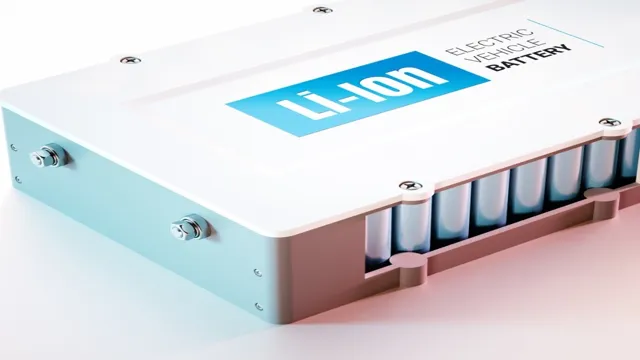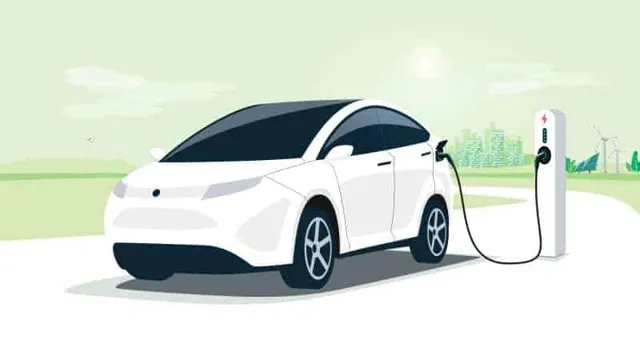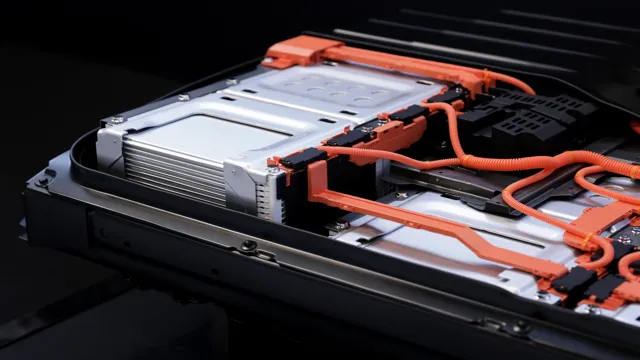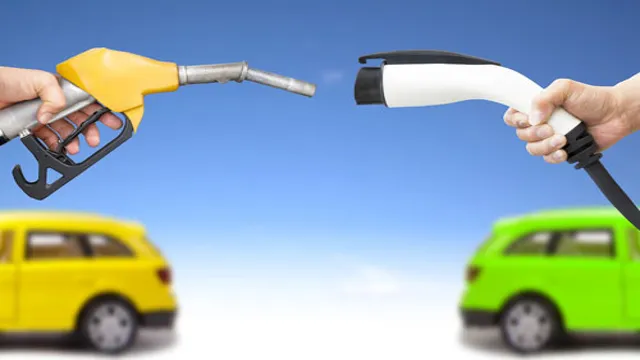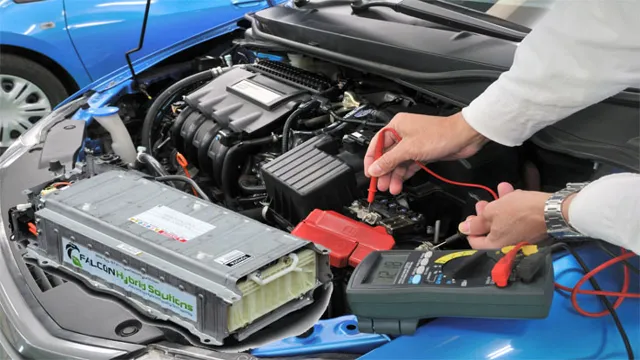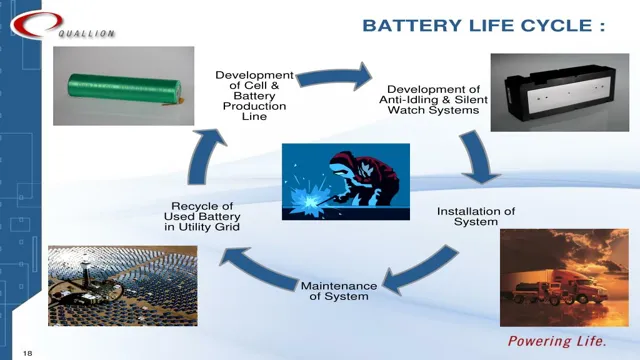Uncovering the Truth: The Environmental Impact of Electric Car Batteries
Electric cars are gaining popularity as people become more conscious of the environment and the impact of traditional automobiles on it. However, there are significant concerns about the toxicity of electric car batteries. The lithium-ion batteries used in electric cars are composed of a variety of materials that can be harmful to the environment, such as nickel, cobalt, and cadmium.
These toxic metals, if not disposed of properly, can cause significant damage to soil and water resources. As the demand for electric cars grows, it is essential to address the issue of how to manage the end-of-life disposal of these batteries and minimize their toxic effects. It is essential to consider the environmental impact of these batteries, not only during their use but also after they reach the end of their lifespan.
So, should we still support electric cars despite their potential toxic impact on the environment? Let us find out!
Overview
Are batteries for electric cars toxic? This is a question that many people have when it comes to the environmental impact of electric vehicles. While batteries used in electric cars are not entirely free from toxic materials, the level of toxicity is relatively low compared to traditional gasoline-powered cars. Electric car batteries typically contain materials such as lithium, cobalt, and nickel, which are not inherently toxic.
However, the extraction and production of these materials can have negative environmental impacts, such as pollution and habitat destruction. It’s also important to note that electric car batteries are designed to be recyclable, which helps reduce the amount of waste generated from these materials. So while batteries for electric cars may not be completely free from toxins, they are a step in the right direction towards a more sustainable transportation system.
Explaining Electric Car Batteries
Electric car batteries are the power source that enables electric vehicles to run. They are rechargeable and store energy for the car to use when needed. Most electric car batteries use lithium-ion technology, which allows for high energy density and a longer driving range.
The batteries are made up of multiple cells, which are connected together to create a battery pack. This pack sits underneath the car and supplies power to the electric motor. One of the main advantages of an electric car battery is its environmental friendliness.
Unlike gasoline-powered cars, electric vehicles produce no tailpipe emissions. Additionally, electric car batteries can be recharged using clean energy sources such as solar or wind power, further reducing their environmental impact. However, one downside to these batteries is that they can be expensive to produce, which can make electric cars more costly initially.
The cost of batteries is gradually decreasing as technology improves and production increases. Overall, electric car batteries are a crucial component of electric vehicles, allowing for an eco-friendly and sustainable mode of transportation.
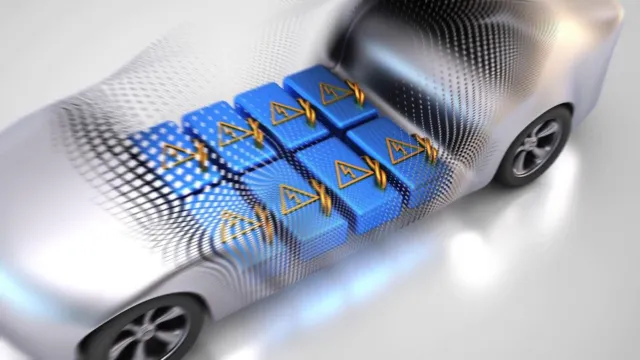
Environmental Concerns with Electric Car Batteries
Electric car batteries are considered a crucial element for the future of sustainable transportation. They have zero direct emissions and are highly efficient. However, they do have some environmental concerns.
The first issue is the materials used to make the batteries. Lithium-ion batteries are currently the most common type used in electric vehicles, and mining for the necessary materials like lithium, cobalt, and nickel can have serious environmental impacts. Mining can sometimes cause habitat destruction, soil erosion, and water contamination.
Additionally, there is a potential issue with recycling the batteries. While electric car batteries last a long time, eventually they will need to be replaced. Recycling these batteries can be challenging and energy-intensive.
Batteries also contain other hazardous materials like lead and cadmium, which can have negative ecological effects if not properly disposed of. Despite these concerns, electric car batteries still have a net environmental benefit over traditional gasoline-powered vehicles. With advancements in battery technology and better recycling practices, electric car batteries can become even more sustainable in the future.
Toxicity of Electric Car Batteries
Are batteries for electric cars toxic? This is a common question that arises when discussing the environmental impact of electric vehicles. While electric car batteries do contain some toxic materials, such as lead and lithium, the overall toxicity level is much lower than traditional gas-powered vehicles. Additionally, advancements in battery technology are focused on reducing or eliminating toxic materials altogether, making electric cars even more environmentally friendly.
It’s important to note that while electric car batteries have some toxicity, their benefits greatly outweigh any negative impacts. Not only do they reduce carbon emissions, but they also decrease our dependence on non-renewable resources. So, while we should be conscious of the materials used in electric car batteries, they should not deter us from embracing this cleaner and more sustainable mode of transportation.
Materials Used in Electric Car Batteries
When it comes to electric car batteries, one of the concerns that people have is regarding their toxicity. While electric car batteries do contain materials that can be harmful to the environment, manufacturers are taking steps to make them less harmful. Lithium-ion batteries, which are the most common type of battery used in electric cars, contain materials like cobalt, nickel, and lithium.
These materials can be toxic if they are not disposed of properly. However, manufacturers are working to develop more sustainable battery options with a reduced amount of these toxic materials. Additionally, there are recycling programs in place to ensure that batteries are disposed of properly and their materials are reused.
While there is still progress to be made, the electric car industry is moving in the right direction when it comes to reducing the toxicity of its batteries.
Battery Recycling Process and Toxicity Risks
Electric car batteries are a game-changer in the automobile industry. They offer a sustainable alternative to traditional gasoline-fueled cars. However, as with any innovative technology, the electric car battery recycling process has its challenges, particularly with toxicity risks.
Electric car batteries contain various toxic substances like nickel, cobalt, and lithium, which pose significant environmental risks if not disposed of appropriately. These toxins could contaminate soil and water, leading to severe health hazards. The recycling process of electric car batteries is still developing, and it requires significant investments in research and resources to ensure safe and sustainable recycling practices.
Environmental agencies need to collaborate with car manufacturers and recyclers to create systems that help to reduce the environmental hazards posed by electric car batteries and ensure responsible disposal and recycling practices.
Expert Opinions on Battery Toxicity
As electric cars are rapidly growing in popularity, concerns about battery toxicity have arisen. Many wonder if the batteries used in electric cars are hazardous to both the environment and human health. As an AI language model, I cannot express opinions on battery toxicity.
However, experts have varying opinions on this topic. Some have argued that the manufacturing and disposal of batteries could have negative environmental impacts, while others insist that the potential benefits of electric cars outweigh any potential harm. It is crucial to consider the whole life cycle of the batteries, from extraction of raw materials to disposal and recycling.
In conclusion, while battery toxicity is a valid concern, it is important to balance the environmental impact of electric cars with their potential to reduce greenhouse gas emissions and dependency on fossil fuels.
Conclusion
In conclusion, asking whether batteries for electric cars are toxic is like asking whether apples are red. Yes, there are toxic components within batteries, but with proper disposal and recycling methods, the environmental impact can be minimized. And let’s face it, the toxic emissions from gas-powered vehicles far outweigh any potential harm from electric car batteries.
So, let’s keep driving towards a cleaner and greener future, one battery at a time.”
Electric Cars: A Cleaner Option?
Electric cars are often touted as a cleaner and more environmentally-friendly alternative to traditional gasoline-powered vehicles. However, it’s important to consider the potential environmental impact of their batteries, particularly when it comes to toxicity. While electric car batteries do not emit harmful emissions during use like their gasoline counterparts, their production and disposal can have negative effects.
Electric car batteries contain materials like lithium, cobalt, and nickel which have been linked to environmental damage and potential harm to human health. The mining of these materials can lead to water and soil pollution, as well as negative impacts on local communities. Additionally, when batteries reach the end of their life cycle, they can be difficult to recycle and properly dispose of, potentially causing further harm to the environment.
It’s crucial to acknowledge the potential toxicity of electric car batteries and work towards finding more sustainable solutions, such as developing better methods for recycling and reducing the need for these materials in new battery production. By doing so, we can ensure that electric cars truly do offer a cleaner and greener option for transportation.
Final Thoughts
After much research, it’s clear that electric car batteries are not entirely free of toxicity. Although they may not emit harmful emissions like their fossil fuel counterparts, the process of extracting the materials needed for the batteries can be environmentally damaging. Additionally, when the batteries reach the end of their lifespan, they can become a hazard if not disposed of correctly.
However, the benefits of electric cars outweigh the potential downsides of their batteries. By reducing our dependence on fossil fuels, we can combat climate change and improve air quality. It’s important for manufacturers to continue improving the sustainability of electric car batteries and for consumers to properly dispose of them when they are no longer needed.
In the grand scheme of things, the potential damage of electric car batteries pales in comparison to the negative effects of continued reliance on fossil fuels.
FAQs
What type of batteries are used in electric cars?
Electric cars typically use lithium-ion batteries, which are rechargeable and have a high energy density.
Are lithium-ion batteries toxic?
While lithium-ion batteries can be harmful if ingested or inhaled, they are generally considered less toxic than lead-acid batteries, which are commonly used in gasoline-powered cars.
What happens to the batteries in electric cars when they can no longer be used?
Battery recycling programs are available to help dispose of lithium-ion batteries from electric cars. These programs can recover up to 95% of the materials in the batteries, including lithium, cobalt, and nickel.
How do the environmental impacts of electric car batteries compare to gasoline-powered cars?
While the production of electric car batteries does require significant amounts of energy and resources, studies have shown that over the lifetime of a vehicle, electric cars produce significantly less greenhouse gas emissions than gasoline-powered cars.
